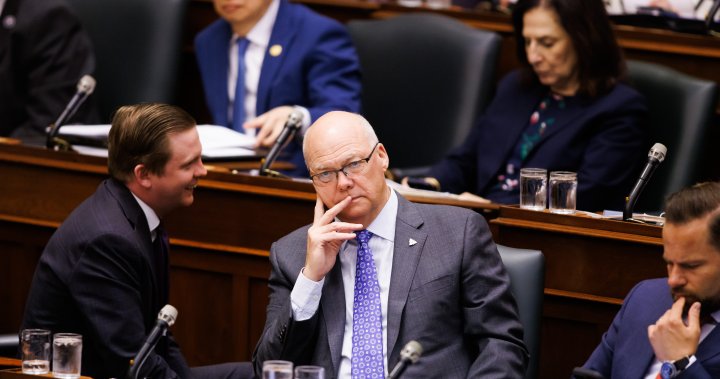The Ontario legislature has become the latest battleground in a growing municipal governance controversy, as Premier Doug Ford’s government firmly resists calls to amend the contentious Bill 9, legislation that significantly expands powers to remove city councillors from office. Critics argue the bill represents an unprecedented provincial overreach into municipal affairs, while supporters maintain it provides necessary accountability measures.
“This legislation strikes at the heart of local democracy,” said Toronto City Councillor Shelley Carroll during heated committee hearings last week. “We’re witnessing a fundamental shift in how municipal representatives can be removed—not by voters, but through provincial mechanisms that bypass democratic processes.”
Bill 9, formally titled the “Better Municipal Governance Act,” introduces provisions allowing for the removal of municipal councillors through a two-thirds council vote if a member has been found to have violated workplace policies. The legislation emerged following several high-profile misconduct cases across Ontario municipalities, but has sparked intense debate about appropriate provincial involvement in local governance.
Premier Ford defended the bill during Question Period on Tuesday, stating: “Municipalities needed a clear process to address serious misconduct. We’ve provided that framework while respecting local autonomy.” However, Ford’s characterization contrasts sharply with municipal leaders’ perspectives, many of whom view the legislation as undermining the independence of local governments.
The Association of Municipalities of Ontario (AMO) has voiced particular concern about the bill’s provisions, noting that while addressing workplace harassment is essential, the removal mechanisms could potentially be misused for political purposes. According to AMO President Colin Best, “Municipal councils need tools to address misconduct, but those tools must come with appropriate safeguards to prevent abuse.”
Opposition parties have proposed several amendments, including stronger appeal mechanisms and clearer definitions of what constitutes removable offenses, but these suggestions have been consistently rejected by the Progressive Conservative majority. NDP Municipal Affairs critic Jeff Burch called the government’s approach “deeply troubling,” suggesting the bill gives too much discretion to provincial authorities.
Legal experts have raised constitutional questions about the legislation. Professor Alexandra Flynn from the University of British Columbia’s Peter A. Allard School of Law noted that “while provinces do have authority over municipalities, this degree of intervention in councillor discipline potentially undermines the democratic relationship between elected officials and their constituents.”
The legislation comes amid already strained relations between the province and many of its municipalities following several controversial interventions, including the use of strong mayor powers and changes to regional governance structures. Toronto in particular has frequently found itself at odds with Ford’s government since the premier’s controversial 2018 decision to cut the city’s council nearly in half mid-election.
Municipal governance specialists point out that Ontario municipalities already have integrity commissioners and codes of conduct, raising questions about whether this additional layer of oversight is necessary or appropriate. According to a recent analysis by the C.D. Howe Institute, the bill potentially creates duplicative and confusing accountability structures.
As the legislation moves through final readings in the provincial parliament, municipalities across Ontario are preparing for significant changes to governance structures. The bill is expected to receive final approval despite opposition, raising profound questions about the future relationship between provincial and municipal governments in Canada’s most populous province.
What remains to be seen is whether this provincial intervention will actually improve municipal governance as intended, or whether it represents a troubling erosion of local democratic authority that could fundamentally alter the balance of power in Ontario’s political landscape?

























